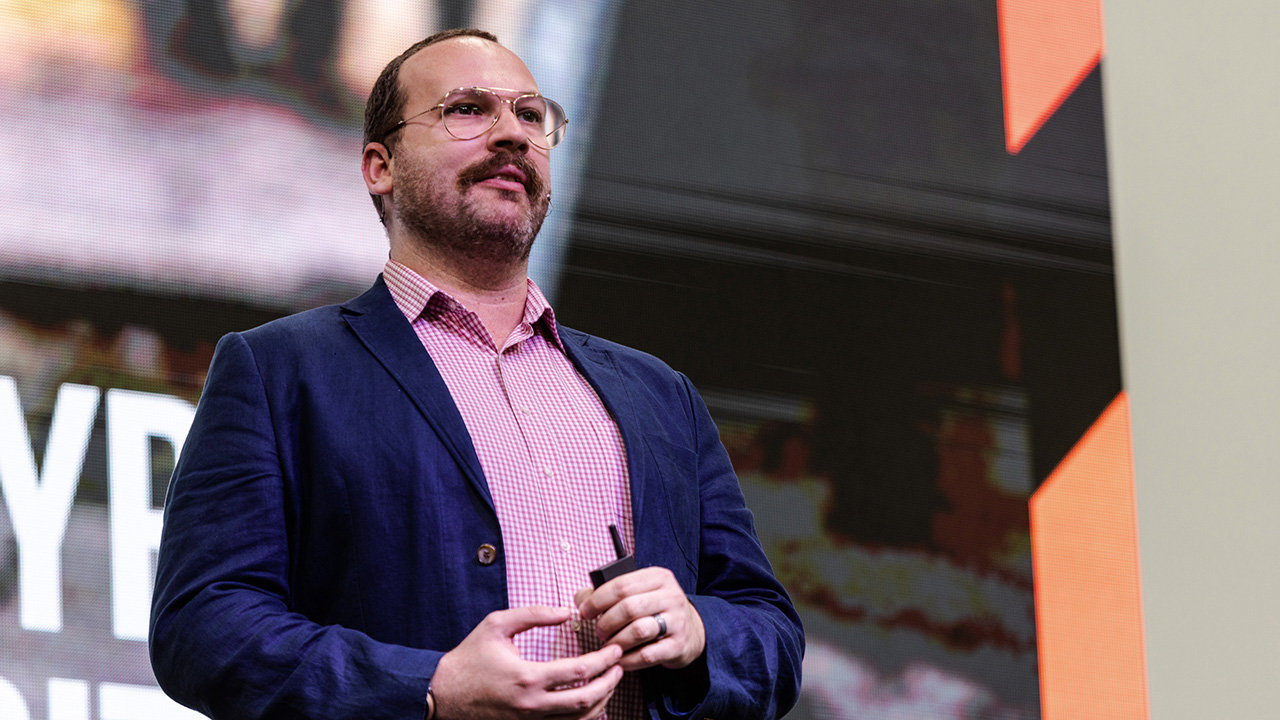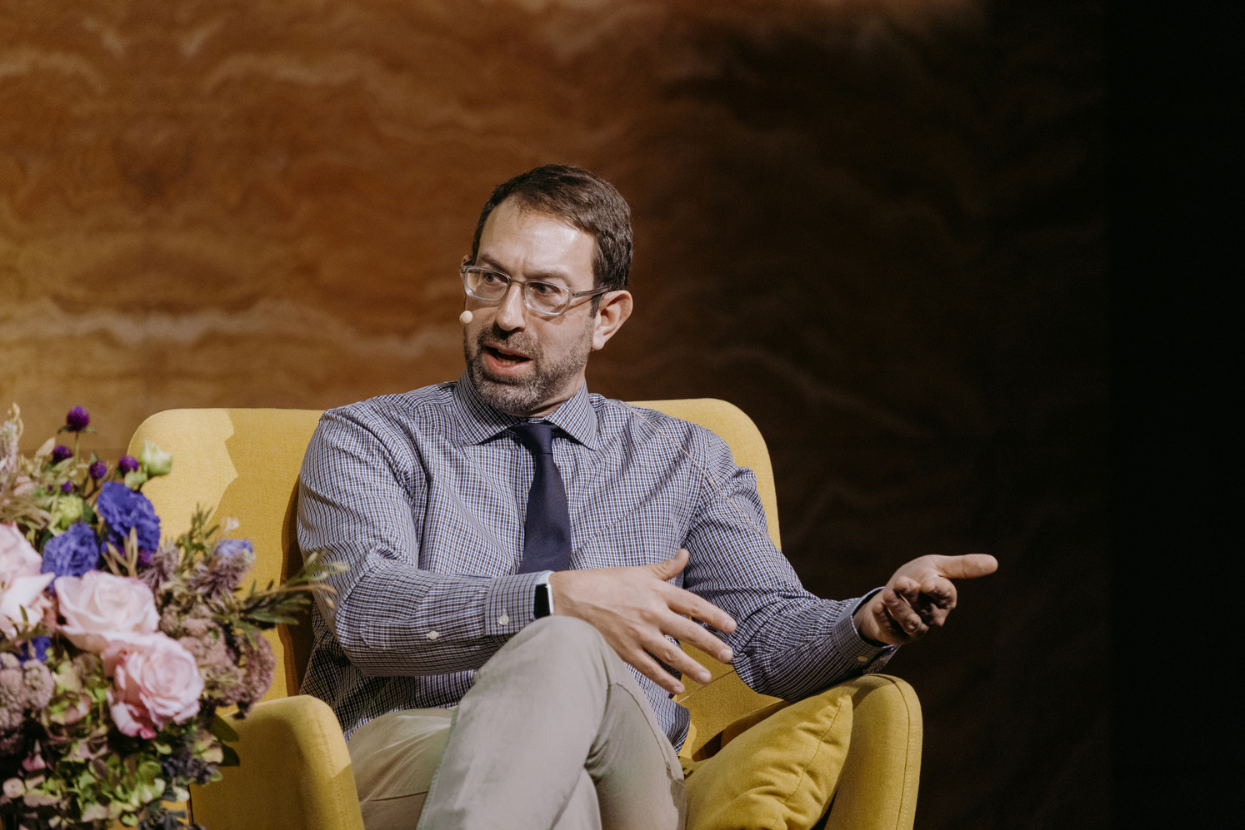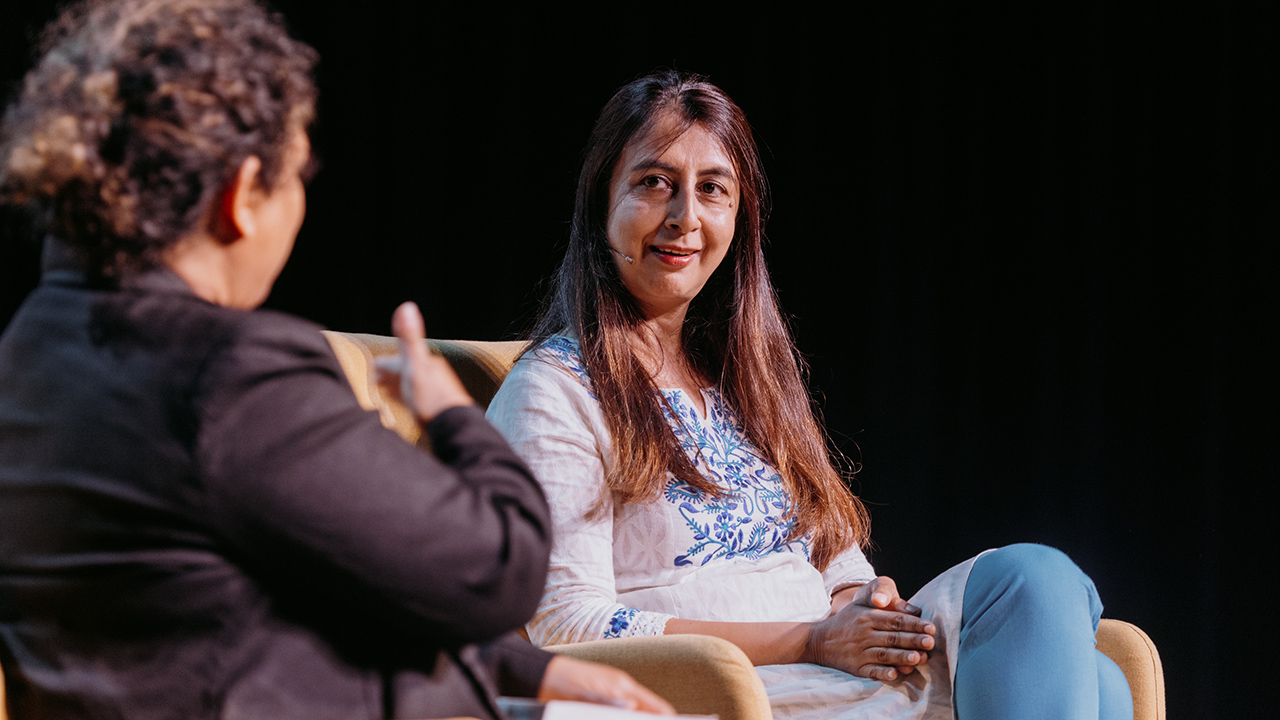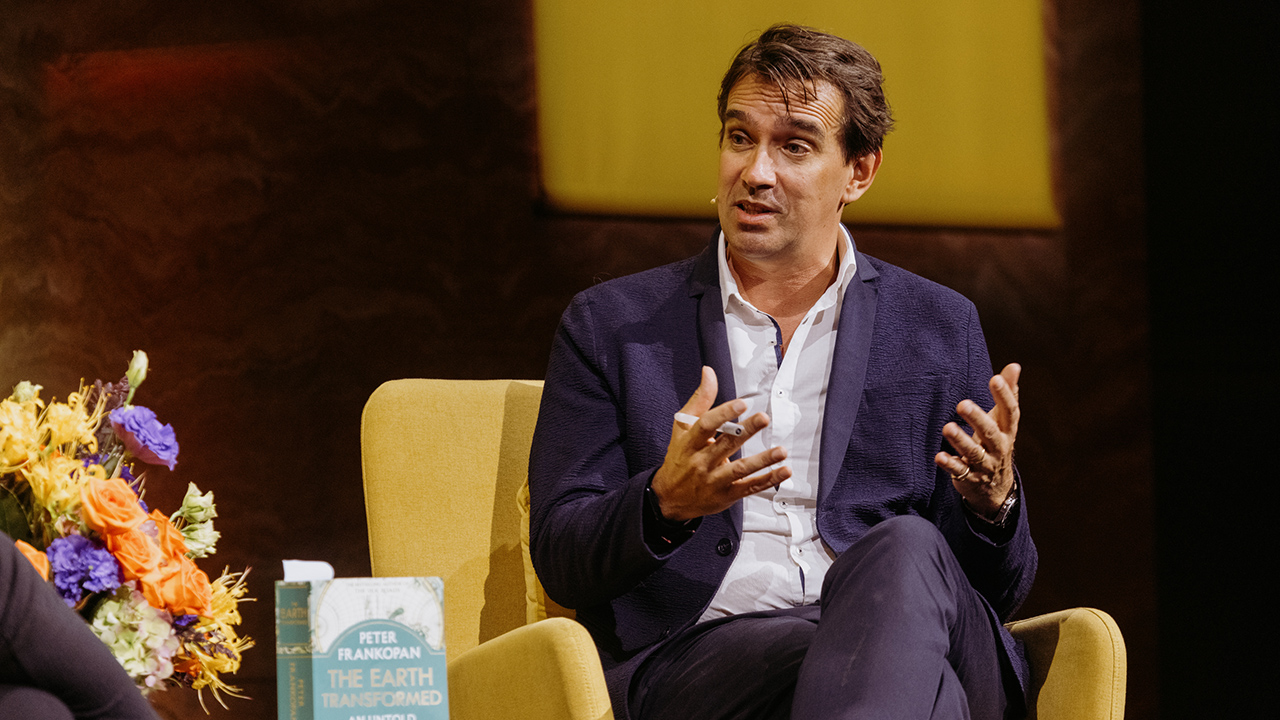Lucas Lixinski | Post-apocalyptic cultural heritage

The way we consume cultures and identities will lead to the destruction of our heritage as we know it.
The World Heritage List has 1,154 sites on it. Every year, new locations are added, but sites are seldom removed. We have an uncanny capacity to collect things – in our homes, in museums, on heritage lists… but we rarely stop to question what it means for something to be elevated to heritage status and whether that classification should be permanent. While the protection of natural environments and artefacts from forgotten civilisations are of the utmost cultural significance, perhaps we should better interrogate the motives of the gate keepers to what is considered worthy. Are we destined to continue growing these bloated heritage lists until they lose all meaning, or can we learn to let go to make room for the new?
This talk was a part of Unthinkable, an event of short talks in the 2022 Festival of Dangerous Ideas.
Transcript
UNSW Centre for Ideas: Welcome to the UNSW Centre for Ideas podcast. A place to hear ideas from the world's leading thinkers and UNSW Sydney’s brightest minds. The talk you are about to hear, Post-Apocalyptic Cultural Heritage, features UNSW Sydney’s Lucas Lixinski, and was recorded live. This talk was part of Unthinkable, an event of short talks in 2022 Festival of Dangerous Ideas.
Lucas Lixinski: I want to tell you a story about something that's at the heart of our identity. This is a story about cultural heritage, which is the physical marker of our culture. Its monuments, sites, shipwrecks, dances, songs, paintings, and even stamp collections. It's a story about how we create and consume this heritage, via heritage lists, our tourism choices, and believing that culture is somehow better because the internet tells us it's on the World Heritage List. This is a story about how our consumption practices are inherently dangerous, and can lead to unthinkable consequences. I believe we're in the process of losing touch with our shared humanity. Things like the destruction of libraries in Ukraine that hold the origins of Ukrainian language because of Russia's invasion, or Russia, using the existence of Catherine the Great Palaces in Ukraine, which they claim to be Russian heritage, to even justify invading the country in the first place. Now barely shock us anymore, because we're so used to consuming heritage as a by-product of pain. But I also believe the path we're following towards the unthinkable, is not inevitable or unavoidable.
There are two consumption practices I see leading us towards the doom of cultural heritage. One is their suffocating hoarding instincts, and the other is using heritage to promote divisive groupings. First, on our suffocating hoarding instincts, let me give an example. I have a really hard time letting go of certain things, especially books. I love my books, even though I know I will never reread most of them. Now, hoarding revolves around an anxiety, and the comfort of having a certain object and the memories it evokes close to us, creates an inability to let go.
We sort of did the same with our cultural heritage as an anxiety of civilisation. We keep collecting and amassing it, a building is added to a heritage list or a form of theatre becomes protected. But we never stopped to think about why we wanted these things to be declared heritage to begin with, not after they have been legally protected. The status of heritage is nearly immutable, and the law guarantees that.
In my research at UNSW Law and Justice, examining the impacts of cultural heritage law across the world, I'm constantly thinking about what it means to become heritage forever. The same way, we're surrounded by heritage, I'm constantly surrounded by books at home. Sure, they make me feel good, and they evoke some memories, but I'm running out of space. So I need to make one of three choices.
One: I let go of at least some of these books to make room for new ideas. And in doing so, I forced myself to reconsider every now and then which books are worth saving, over and over again, even if I have already decided to save them before.
Two: I can simply stop buying books and become very sad in my ways of thinking, because I won't be exposed to many new ideas.
Or, three: I can let myself be absorbed by a labyrinth of paper, which will one day probably catch fire.
Does it sound bleak and a bit extreme? Yes, but bear with me. Because something like that happens to heritage. The World Heritage List has 1,154 sights on it. One thousand, one hundred and fifty-four. It was designed to host a few things that would remind us of our shared humanity. And now it's impossible to keep up with it. One thousand, one hundred and fifty- four! And that's just one of the lists, before we even get to the many museums out there, and their impossible inventories. Did you know that what's on display in a major museum is usually only about 10% of their collection?
We're surrounding ourselves with stuff which we consume indiscriminately. And that's problematic for two related reasons. First, we need to make sense of that heritage. And as a result, we need to rely more and more on experts to tell us what to do with our own culture. Because of that, as well meaning as these experts are, they tend to forget to do work for us and they start working for the heritage. Now it's a good thing to work for the heritage in some contexts, because it protects it from the fickle politics of the day. Like what happens when people say that they want to shrink the size of the Tasmanian wilderness area, which is on the World Heritage List to allow for more logging. But it also means that I stopped being asked to make decisions about the books I treasure, which forces me to think about who I am and my values, and I defer to a librarian instead, who is an even worse hoarder than I am.
So having too much heritage actually makes us less connected to it, because we can't keep track of it. Now, to be sure, we each feel differently about different elements of heritage, but pushing that representativeness too far, only pulls us apart. And the second reason is that, with us having too much heritage, and not being able to keep track of it, because we can't make sense of the sheer volume, it's very easy for someone else to use it to shape our minds in dangerous ways. Heritage can then be used not to show us how we're all alike, but how we're all different. And to then go on to say that we need to like different people less, is just one terrifying little step.
And this brings me to the second driver leading to the doom of culture heritage, using heritage to promote divisive groupings. Heritage can be, and has been, used in dangerous ways to create division. During a very long period in Rwanda, for instance, heritage in that territory was used to create a distinction between two groups, the Hutus and the Tutsis. The heritage was interpreted to say that the Hutus were considered farmers and the Tutsis herders. Tutsis had more money, and were therefore for a more distinguished ethnic group and should be in charge. Rwandans from both groups were told by experts, on the basis of the archaeological record, that they were fundamentally different. And that one group who just so happens to be in power was more civilised than the other, and the other group was primitive. And then 28 years ago, the unthinkable happened 800,000 people were killed in the space of a month. Manipulating and selecting heritage helped make that happen.
Now thinking about the future, I believe we have two choices. One, the path of less resistance is to keep doing exactly what we're doing for a culture, which is either nothing, or protecting it
so tightly that it becomes rigid and divorced from our everyday lives. We become like shepherds of the Swiss Alps, which is also on the World Heritage List, who were told that they needed to remove their sheep from the mountains because it would harm the heritage. And now that the sheep are not there to eat the grass, the Swiss government needs to helicopter lawnmowers onto the Alps, just to cut it. It might make more sense to take the Alps out of the list. Let the shepherds and the sheep look after them. Heritage laws separated heritage from people. If we're less connected to our heritage, people have an opening to manipulate it so that when it suits them, we can concoct enemies that are less civilised or even less human. We then go to war, we spill a lot of blood, and it all becomes Mad Max. Or, here's the second dangerous option. We learn to let go of culture so we can make room for culture. Does it sound like Marie Kondo? A little bit. But the process of figuring out whether something sparks joy forces us to remember why we selected something to begin with, and it has an effect on our future by forcing us to look at the past.
75 years ago, the United Nations Educational, Scientific and Cultural Organisation, UNESCO, had just been created, and was trying to work out what to do in the field of culture and cultural heritage. Its constitution declared two important things. First, that since wars begin in the minds of men, it is in the minds of men that the defences of peace must be constructed. And two, that ignorance of each other's ways in lives has been a common cause throughout the history of mankind, of that suspicion and mistrust between the peoples of the world for which their differences have all too often broken into war.
We already knew that culture was important then. But we assumed that voracious consumption was good, and that more culture meant better culture. We're getting overwhelmed by the amount of it. And that's being counterproductive. We need to allow the World Heritage List to be trimmed down. And one way is to ask states and communities to reconsider every now and then whether they still care enough about that heritage. And whether that heritage still tells an important story about the humanity we want to be. If we're serious about those two ideas in the UNESCO constitution, we need to rethink our relationship with culture. We need to let go. We need to ask ourselves why we care. We need to ask ourselves what the culture we treasure does for one another. Or we can go to the Thunderdome. But my message is, 75 years ago, we made a choice to consume heritage a certain way. And it has brought us to an almost unthinkable now, hoarding, manipulation of identity to incite genocide, Russia using heritage to justify invading Ukraine. Thinking about the future, we can keep pursuing this path, or we get a dangerous do over and I would rather do that before I end up buried under a massive pile of my own books, next to a candle.
UNSW Centre for Ideas: Thanks for listening. This talk was presented by the UNSW Centre for Ideas and Festival of Dangerous Ideas. For more information visit centreforideas.com, and don't forget to subscribe wherever you get your podcasts.
-
1/3
-
2/3
-
3/3

Lucas Lixinski
Dr Lucas Lixinski is a Professor in the Faculty of Law & Justice, UNSW Sydney. His work analyses how the law shapes identity via cultural heritage protections. His latest book, Legalized Identities, argues that cultural heritage law helps us redefine our societies in the aftermath of a war or dictatorship in deeper ways than we usually acknowledge. The book also argues that racist monuments to the past should not remain unchanged.



